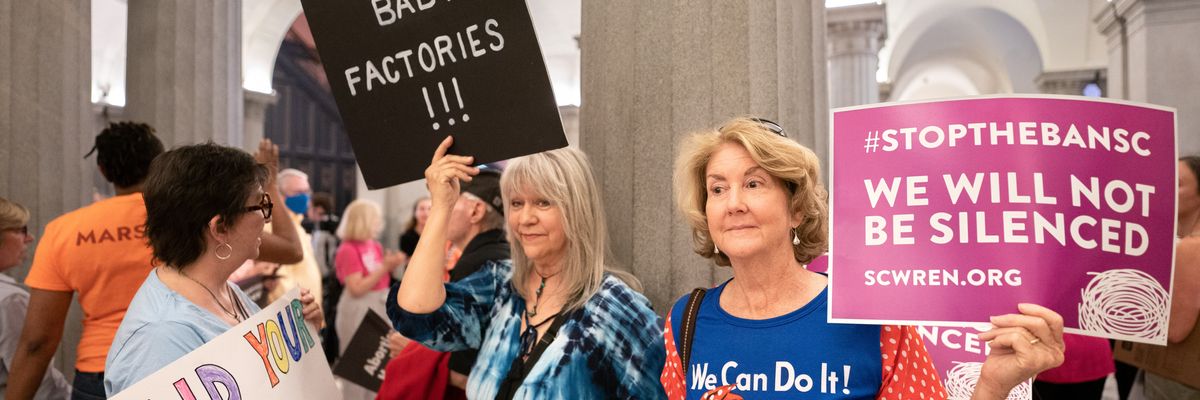Three reproductive rights groups celebrated a victory in South Carolina just one day after filing a lawsuit against the state over its six-week abortion ban, which went into effect earlier this week immediately after Republican Gov. Henry McMaster signed it.
Judge Clifton Newman temporarily halted S. 474 at the request of Planned Parenthood Federation of America, Planned Parenthood South Atlantic (PPSA), and the Center for Reproductive Rights (CRR), which are representing abortion providers in the state in their lawsuit.
The groups are also calling for a judgment declaring the ban unconstitutional, as the South Carolina Supreme Court did in January regarding a previously-passed six-week abortion ban.
For the time being, said PPSA, "abortion is again legal in South Carolina."
"The status quo should be maintained until the Supreme Court reviews its decision," Newman said in his decision. "It's going to end up there."
With the ban blocked, abortion care is currently legal in South Carolina up until about 20 weeks after fertilization.
"Today the court has granted our patients a welcome reprieve from this dangerous abortion ban," said Jenny Black, president and CEO of PPSA. "Our doors remain open, and we are here to provide compassionate and judgment-free health care to all South Carolinians. While we have a long fight ahead, we will not stop until our patients are again free to make their own decisions about their bodies and futures."
Advocacy groups warned this week that if S. 474 is allowed to stand, it will threaten the bodily autonomy of South Carolinians as well as people from across the South, where abortion is largely banned now following the U.S. Supreme Court's overturning of Roe v. Wade.
S. 474 includes exceptions for fatal fetal abnormalities and the pregnant person's life and health—although numerous cases since Roe was overturned have demonstrated how such exceptions can put the physical and emotional health of a pregnant person at grave risk. The ban permits abortion until up to 12 weeks of pregnancy in cases of rape and incest, but only if the patient's medical provider reports the crime and the patient's name to authorities.
"For the past year, we have seen the dangerous consequences of these extreme laws across the country," said Caroline Sacerdote, staff attorney for CRR. "Even still, state legislators have continued to cruelly gamble with people's health and lives, betraying South Carolinians and their fundamental rights. We will keep fighting to ensure South Carolinians' reproductive freedom is protected."
Former state Supreme Court Justice Kaye Hearn wrote the opinion in the 3-2 ruling that was handed down in January, blocking the earlier six-week ban. She has since retired from the court.
